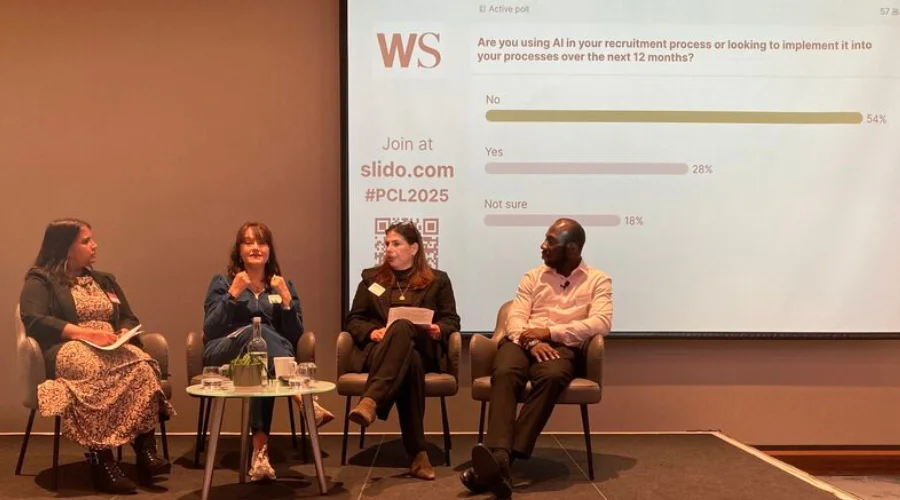
Quick CV Dropoff
Want to hear about the latest non-profit and public sector opportunities as soon as they become available? Upload your CV below and a member of our team will be in touch.

Being a Non-Executive Director (NED) is both rewarding and challenging.
The Institute of Directors have produced a guide on the role of the non-executive director which is worth reading.
In a nutshell, the Non-Executive Director is required to inspire, motivate, strategize, challenge, guide, identify risks and suggest solutions.
You’ll bring a wealth of experience gained in different roles and environments, a range a skills acquired in other sectors that will enable the recruiting organisation to succeed.
You’ll also be bringing a fresh perspective that will enrich the boardroom discussions, you’ll have the ‘helicopter vision’ needed to impact decisions which existing Directors may have lost due to their close involvement on a day-to-day basis.
We’re frequently asked by candidates for Non-Executive Director interview advice. We hope the below will give you some useful advice and guidance.
The first thing to say is if you’ve been successful in being selected for a NED interview – congratulations! They are highly competitive and the fact you’ve been offered an interview is testament to your relevance and experience to the role. This is already an achievement!
The interview format will be very similar to a paid role, so prepare for questions as you would normally for a competency-based interview.
NED interviews will focus on organisational strategy (both your understanding of the organisation’s strategy that you are interviewing for, and your skills and experience in operating at this level), the questions they ask will check that your views, visions and values are in alignment with theirs. You will need to demonstrate that you understand the organisations aspirations and challenges.
As Non-Executives do not engage in the day-to-day running of the company, they will want to test your comfort operating strategically, your work ethic and commitment. They may look for you to demonstrate examples where you have operated at the strategic level, ask for your experience in being able to stop yourself from being drawn into the day-to-day management, and how much time you can dedicate to the project.
You will need to show that you have researched and understood the Board’s strategic objectives, the risks they face and that you are able to match your skills and experience to their particular need – essentially how can you make a valuable contribution to the future direction. Websites, news features, annual reports and strategy documents are a good basis for research.
Pre-interview, it is usually possible to speak with either the Chair or another Board Director as part of the recruitment process – we’d recommend you take the opportunity to do so if offered. If not, look to your network, perhaps you know of someone in your network with a link to the organisation (past or present) or who could introduce you to someone else with more recent knowledge.
Opening
You’ll need to demonstrate your drive and desire to inspire positive change within a business. Your motivation for applying. You’ll need to show you have a firm grasp of what they want to achieve in the future and where your knowledge/experience can add value. Where does this NED role fit in your career plan / portfolio and how can you ensure that you have time to dedicate to this position? What, if any, is your link in terms of this specific organisation.
Leadership
Being a NED is a balancing act, requiring flexibility - it’s a mix of authority and control but when needed you must make way for delegation and a hands-off approach. You’ll need to demonstrate you understand their business culture. If you’ve not been a NED before, outline here how you think your style might need to differ in a NED role vs your approach in your day-to-day work (and then why you have the right skills to succeed) to demonstrate an understanding of the differences between the roles.
Strategic Thinking
Demonstrate a deep knowledge of the organisation and existing strategy. You will need to demonstrate your approach to strategic solutions, where you can provide solutions for potential problems, that you understand their views and visions, challenges and opportunities.
Change
They will want to hear examples of your relationship skills and your ability to hold executives to account. It is important that you convey you can be critical but also have the knowledge to provide strong arguments and suggest solutions.
Governance
They will want to hear that you can identify and help rectify any risk. It’s important you demonstrate the ability for detail and figures.
USP
They’re obviously interested in your knowledge, skills, and experience, but they want to bring people on board with a vision that offers value.
As we said earlier, being a Non-Execut
Being a Non-Executive Director (NED) is both rewarding and challenging.
The Institute of Directors have produced a guide on the role of the non-executive director which is worth reading.
In a nutshell, the Non-Executive Director is required to inspire, motivate, strategize, challenge, guide, identify risks and suggest solutions.
You’ll bring a wealth of experience gained in different roles and environments, a range a skills acquired in other sectors that will enable the recruiting organisation to succeed.
You’ll also be bringing a fresh perspective that will enrich the boardroom discussions, you’ll have the ‘helicopter vision’ needed to impact decisions which existing Directors may have lost due to their close involvement on a day-to-day basis.
We’re frequently asked by candidates for Non-Executive Director interview advice. We hope the below will give you some useful advice and guidance.
The first thing to say is if you’ve been successful in being selected for a NED interview – congratulations! They are highly competitive and the fact you’ve been offered an interview is testament to your relevance and experience to the role. This is already an achievement!
The interview format will be very similar to a paid role, so prepare for questions as you would normally for a competency-based interview.
NED interviews will focus on organisational strategy (both your understanding of the organisation’s strategy that you are interviewing for, and your skills and experience in operating at this level), the questions they ask will check that your views, visions and values are in alignment with theirs. You will need to demonstrate that you understand the organisations aspirations and challenges.
As Non-Executives do not engage in the day-to-day running of the company, they will want to test your comfort operating strategically, your work ethic and commitment. They may look for you to demonstrate examples where you have operated at the strategic level, ask for your experience in being able to stop yourself from being drawn into the day-to-day management, and how much time you can dedicate to the project.
You will need to show that you have researched and understood the Board’s strategic objectives, the risks they face and that you are able to match your skills and experience to their particular need – essentially how can you make a valuable contribution to the future direction. Websites, news features, annual reports and strategy documents are a good basis for research.
Pre-interview, it is usually possible to speak with either the Chair or another Board Director as part of the recruitment process – we’d recommend you take the opportunity to do so if offered. If not, look to your network, perhaps you know of someone in your network with a link to the organisation (past or present) or who could introduce you to someone else with more recent knowledge.
Opening
You’ll need to demonstrate your drive and desire to inspire positive change within a business. Your motivation for applying. You’ll need to show you have a firm grasp of what they want to achieve in the future and where your knowledge/experience can add value. Where does this NED role fit in your career plan / portfolio and how can you ensure that you have time to dedicate to this position? What, if any, is your link in terms of this specific organisation.
Leadership
Being a NED is a balancing act, requiring flexibility - it’s a mix of authority and control but when needed you must make way for delegation and a hands-off approach. You’ll need to demonstrate you understand their business culture. If you’ve not been a NED before, outline here how you think your style might need to differ in a NED role vs your approach in your day-to-day work (and then why you have the right skills to succeed) to demonstrate an understanding of the differences between the roles.
Strategic Thinking
Demonstrate a deep knowledge of the organisation and existing strategy. You will need to demonstrate your approach to strategic solutions, where you can provide solutions for potential problems, that you understand their views and visions, challenges and opportunities.
Change
They will want to hear examples of your relationship skills and your ability to hold executives to account. It is important that you convey you can be critical but also have the knowledge to provide strong arguments and suggest solutions.
Governance
They will want to hear that you can identify and help rectify any risk. It’s important you demonstrate the ability for detail and figures.
USP
They’re obviously interested in your knowledge, skills, and experience, but they want to bring people on board with a vision that offers value.
As we said earlier, being a Non-Executive Director is equally rewarding and challenging.
At TPP we’re here to support you with your journey as a candidate or as an organisation if you’re looking to recruit a Non-Executive Director.
We have years of experience working with leading charities and not for profit Boards in executive recruitment. We’re experts - it’s what we do.
Please call Matt, Lisa or Emma on 0207 198 6060 for an informal chat or email at executive@tpp.co.uk we’d be delighted to speak to you.